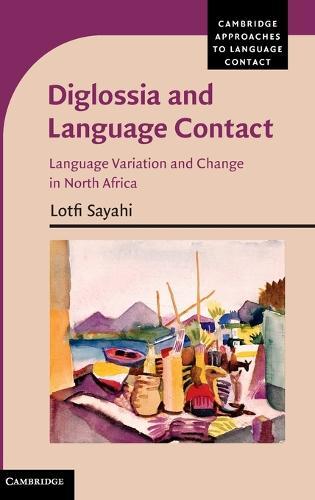Overview
This volume provides a detailed analysis of language contact in North Africa and explores the historical presence of the languages used in the region, including the different varieties of Arabic and Berber as well as European languages. Using a wide range of data sets, it provides a comprehensive analysis of the mechanisms of language contact under classical diglossia and societal bilingualism, examining multiple cases of oral and written code-switching. It also describes contact-induced lexical and structural change in such situations and discusses the possible appearance of new varieties within the context of diglossia. Examples from past diglossic situations are examined, including the situation in Muslim Spain and the Maltese Islands. An analysis of the current situation of Arabic vernaculars, not only in the Maghreb but also in other Arabic-speaking areas, is also presented. This book will appeal to anyone interested in language contact, the Arabic language, and North Africa.
Full Product Details
Author: Lotfi Sayahi (State University of New York, Albany)
Publisher: Cambridge University Press
Imprint: Cambridge University Press
Dimensions:
Width: 15.50cm
, Height: 1.60cm
, Length: 23.50cm
Weight: 0.500kg
ISBN: 9780521119368
ISBN 10: 0521119367
Pages: 267
Publication Date: 24 April 2014
Audience:
Professional and scholarly
,
Professional & Vocational
Format: Hardback
Publisher's Status: Active
Availability: Manufactured on demand

We will order this item for you from a manufactured on demand supplier.
Reviews
'Sayahi's fascinating history of the collision of languages in the Maghreb reclaims the original definition of diglossia and will transform the way linguists conceptualize its role as a mechanism of language change.' Barbara E. Bullock, University of Texas, Austin 'Combining synchronic and diachronic research on Arabic and the languages with which it has been in contact around the western Mediterranean, this book masterfully demonstrates the role diglossia can play in language change.' Keith Walters, Portland State University
'Sayahi's fascinating history of the collision of languages in the Maghreb reclaims the original definition of diglossia and will transform the way linguists conceptualize its role as a mechanism of language change.' Barbara E. Bullock, University of Texas, Austin 'Combining synchronic and diachronic research on Arabic and the languages with which it has been in contact around the western Mediterranean, this book masterfully demonstrates the role diglossia can play in language change.' Keith Walters, Portland State University 'I have found the book as a whole to be very illuminating. It contains a great deal of new information, and also newly-packaged older information.' Uri Horesh, Journal of Sociolinguistics Sayahi's fascinating history of the collision of languages in the Maghreb reclaims the original definition of diglossia and will transform the way linguists conceptualize its role as a mechanism of language change. Barbara E. Bullock, Professor, University of Texas at Austin Combining synchronic and diachronic research on Arabic and the languages with which it has been in contact around the western Mediterranean, this book masterfully demonstrates the role diglossia can play in language change. Keith Walters, Professor, Portland State University 'I have found the book as a whole to be very illuminating. It contains a great deal of new information, and also newly-packaged older information.' Uri Horesh, Journal of Sociolinguistics
Advance praise: 'Sayahi's fascinating history of the collision of languages in the Maghreb reclaims the original definition of diglossia and will transform the way linguists conceptualize its role as a mechanism of language change.' Barbara E. Bullock, University of Texas, Austin Advance praise: 'Combining synchronic and diachronic research on Arabic and the languages with which it has been in contact around the western Mediterranean, this book masterfully demonstrates the role diglossia can play in language change.' Keith Walters, Portland State University
Author Information
Lotfi Sayahi is Associate Professor of Linguistics and Chair in the Department of Languages, Literatures, and Cultures at the State University of New York, Albany, where he teaches courses on sociolinguistics, bilingualism, and language contact.




